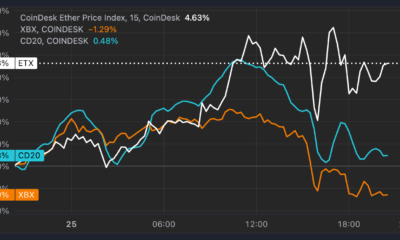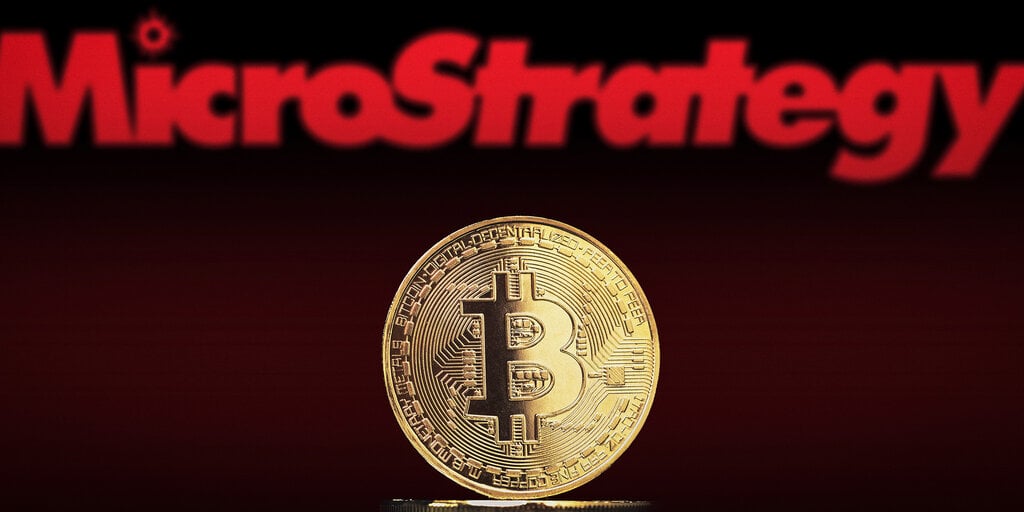business
Seedless Keys And DLCs: How Lava Is Making Bitcoin Custody Easy
Published
4 months agoon
By
admin

Company Name: Lava
Founders: Shehzan Maredia
Date Founded: January 2022
Location of Headquarters: New York, USA (with some remote employees)
Amount of Bitcoin Held in Treasury: N/A
Number of Employees: 7
Website: https://www.lava.xyz/
Public or Private? Private
Shehzan Maredia wants to make custodying Bitcoin easy.
This is why he founded Lava, an app that he and his team have created that allows users to purchase bitcoin, transact with both bitcoin and stablecoins globally and now hold their bitcoin in self-custody without having to write down a seed phrase.
Maredia is one of a growing list of entrepreneurs in the Bitcoin space who believes that seed phrases — lists of 12 to 24 words used to recover funds from lost or stolen cryptocurrency wallets — are hindering mainstream adoption of bitcoin. He thinks that seedless alternatives to self-custody will help onboard the masses.
“I realized that seed phrases were a big barrier to adoption,” Maredia told Bitcoin Magazine, “and I went down the rabbit hole [to make] something better.”
After months of R&D, Maredia developed a solution that’s now at the heart of the design of the Lava app: Lava Vault.
Lava Vault
After testing a number of different self-custody setups, Maredia and his team arrived at a unique multisignature solution that became the backbone of the Lava Vault.
“We built this two-of-two recovery solution for self-custody where you can attach one part of the two-of-two to your cloud account and the other is a four digit PIN,” he explained.
Introducing the Lava Vault, the best self-custody app for people who want to save in bitcoin and spend in dollars without compromising on security.
free, instant, global payments
buy bitcoin with lowest fees available
secure your assets with seedless, 2-of-2 recovery pic.twitter.com/nEIYIHD6Dg— lava (@lava_xyz) July 16, 2024
“If I have your four digit PIN, I can’t steal your money because I don’t have access to your cloud account. If I have access to your cloud account, I don’t have your four digit PIN, and I can’t brute force it,” he added.
Maredia and the team at Lava call this design the Lava Smart Key, and they believe that it’s helping to provide simpler self-custody for those who otherwise might not want to take on the responsibility.
“We’ve actually seen a bunch of people using it that previously would have just bought bitcoin and kept it on Coinbase,” he said.
What is more, Lava Vault works seamlessly with Lava Exchange, another product Lava recently rolled out.
Lava Vault + Lava Exchange = Auto-Onboarding To Self-Custody
It’s often challenging for new Bitcoin users to tell the difference between a custodial wallet that an exchange provides and a self-custody wallet. It can be overwhelming for someone new to Bitcoin to go through the process of moving their bitcoins from an exchange wallet into self-custodial wallet, especially if the exchange offers both (e.g., Coinbase).
Lava removes this difficulty, though, as it allows users to purchase bitcoin within the app — at the best rate available — before automatically sending that bitcoin into self-custody.
“We have this exchange aggregator we’ve built,” said Maredia.
“If you want to buy bitcoin today, you have to figure out which exchange — Kraken, Coinbase. So, we work with a lot of them. We know what price they offer you based on your order, and we just route you to the best exchange through Lava,” he added.
Once users make their purchase, the bitcoin shows up in their Lava Vault.
“This is super useful if I’m trying to onboard users to self-custody,” said Maredia. “Now, I can tell them to download directly to self-custody, which largely increases the likelihood that they will continue to use self-custody.”
Once users have their bitcoin or stablecoins in self-custody via Lava, they can use either asset to make transactions permissionlessly with anyone in the world. And soon they will also be able to borrow dollars against their bitcoin without having to turn their bitcoin over to a third party.
Lava Loans
Maredia and the Lava team recently released a beta version of a new product called Lava Loans, which Maredia describes as a “self-custodial version of BlockFi.”
BlockFi, now defunct, was a platform that allowed users to use bitcoin as collateral for a loan. The main difference between a platform like BlockFi and Lava is that users had to give up custody of their bitcoin to BlockFi to use the service.
“Lava Loans is the first way to borrow against your bitcoin without giving it to a custodian or bridge,” said Maredia.
Maredia created this product because he both saw the demand for it and wanted something like this for himself.
“There’s a lot of Bitcoiners who don’t want to sell their bitcoin,” shared Maredia.
“I don’t want to sell my bitcoin either, because it’s appreciating. I’d rather borrow against it at a lower interest rate than it’s appreciating,” he added.
He also noticed that the other methods of borrowing against one’s bitcoin are both highly inefficient and expensive.
“There are billions of dollars of bitcoin-secured loans happening with custodians or with Wrapped Bitcoin (WBTC),” he explained.
“To get Wrapped Bitocin, you have to take your Bitcoin, KYC yourself, put it on an exchange, pay fees to mint it, pay a bunch of network fees to move it onto Ethereum and then once you’re done using Wrapped Bitcoin, move it back to your exchange, pay extra fees to unwrap your Bitcoin and move it back to self-custody. And you probably have tax obligations for wrapping your Bitcoin, too,” he added.
“I want to get these people using native bitcoin. We can increase the market size of people who are using actual bitcoin as collateral.”
Discreet Log Contracts (DLCs)
Lava Loans employs a specific type of smart contract on Bitcoin called Discreet Log Contracts (DLCs).
Maredia explained that DLCs are safer than the types of smart contracts often deployed on other major crypto networks.
“DLCs are interesting because you’re basically just using the Bitcoin layer one to lock your Bitcoin and release it under some predefined set of conditions,” he explained.
“[As opposed to] smart contracts on Ethereum or Solana that constantly keep getting hacked, DLCs are basically a bunch of pre-signed transactions that you encrypt. You almost get formal verification of your system by default, because you know that the money that’s locked in the smart contract between you and your counterparty can only be moved under this predefined set of conditions that you have verified,” he added.
“So, there’s a lot less technical risk versus writing arbitrary code deployed on the EVM that anyone can poke around with and exploit.”
Maredia also shared that the Lava team is composed of a number of engineers who contributed to early DLC standards.
“There’s probably like 10 people, a lot of which work at and contribute to Lava right now, who know about this tech,” explained Maredia, who also shared that the potential of DLCs has yet to be fully realized largely because of how new the technology is. “Not too many people know about [DLCs, but] that’s because the tech is early and we’re building it.”
Move Slowly And Safeguard Things
Unlike many in the crypto and broader tech space who take the “Move fast and break things” approach, Maredia and his team are analytical and thorough. They prefer to conduct research and test products rigorously before bringing them to market.
“We’ve been doing a lot of R&D over the last two years,” said Maredia.
“We were experimenting with lots of things. Even before we built Lava Smart Key, Lava Exchange and Lava Loans, we had been experimenting with a lot of different ways to do loans, to do self-custody security and to do on-ramp and off-ramp,” he added.
“This new self-custody security solution is a product of the last eight to ten months of experimentation.”
Maredia added that while Lava Loans is likely months away from going live, the beta version of the product has been functioning well and providing he and his team with important feedback.
“Everything’s coming together,” he concluded.
Lava is a portfolio company of UTXO Management, a regulated capital allocator focused on the digital assets industry. Bitcoin Magazine is owned by BTC Inc., which operates UTXO Management. UTXO invests in a variety of Bitcoin businesses, and maintains significant holdings in digital assets.
Source link
You may like


Ethereum’s ETH Outperforms as Bitcoin (BTC) Price Recoils Off $100K Sell Wall


Safegcd’s Implementation Formally Verified


US detaining Bitcoin mining equipment at border: report


Robinhood Lists Dogwifhat, WIF Price To $5?


MicroStrategy Adds 55,500 More BTC To Its Portfolio For $5.4 Billion


Newmarket Capital Launches Battery Finance, Bitcoin-Collateralized Loan Strategy
Battery Finance
Newmarket Capital Launches Battery Finance, Bitcoin-Collateralized Loan Strategy
Published
5 hours agoon
November 25, 2024By
admin

Newmarket Capital recently closed the first investment deal for its new Battery Finance loan strategy, which enables borrowers to incorporate bitcoin into long-term financing structures as collateral.
On November 7, 2024, Newmarket Capital, an institutional capital manager and Registered Investment Adviser completed a refinancing for the Bank Street Court apartment in Old City, Philadelphia, PA. The loan was collateralized by both the building and approximately 20 bitcoin.
Newmarket Capital CEO Andrew Hohns is excited about not only setting his company’s new strategy in motion but the symbolism in the deal.
“It’s a building that is located less than half a block away from the first bank of the United States,” Hohns told Bitcoin Magazine. “Philadelphia has had a lot of firsts and innovations over the years, and we’re proud to contribute another one to the list.”
How The Battery Finance Strategy Works
Battery Finance enables bitcoin to be used as 10% to 30% of the collateral for loans alongside traditional assets. To bring this new strategy to life, Newmarket Capital partnered with Ten 31 to establish Battery Finance, a majority-owned subsidiary of Newmarket Capital that utilizes bitcoin in financing structures.
Unlike other lending companies that let clients borrow against bitcoin with a risk of liquidation in the event that bitcoin’s price drops below a certain threshold, Newmarket Capital removes the risk and offers loan structures without a mark-to-market trigger.
“As lenders, we are constructive on the long-term value of bitcoin and comfortable recognizing bitcoin as collateral without mark-to-market risk,” said Hohns.
“We achieve this by incorporating bitcoin as a component of a broader collateral package alongside traditionally financeable assets. In this way, we have improved our downside through the introduction of bitcoin, an uncorrelated element — an asset that has had such a strong history of appreciation over time — in the collateral package.”
Deals that employ this strategy can be structured differently. In some cases, a borrower can use bitcoin they’re already holding as collateral for a loan, while, in other cases, Newmarket Capital and the borrower purchase bitcoin as part of the loan’s structure. The latter is how the loan for the Bank Street Court building was structured.
“It’s a $16.5 million building, and we offered the building owner a $12.5 million loan,” explained Hohns.
“The use of proceeds was to pay off the existing financing, which was $9 million, to provide them with approximately two million dollars of CapEx for certain improvements to the property they wanted to make,” he added.
“With the remaining $1.5 million dollars, we purchased just shy of twenty bitcoin as part of our combined collateral package.”
(At the time of writing, that bitcoin had already appreciated 30% in value since it was purchased for the loan.)
Unlike traditional loans which often lock borrowers in with prepayment penalties or a make-
whole, the Bank Street Court financing can be paid off at any time with no penalty. To allow for this outcome, the borrower and the lender align to share appreciation on the upside from the bitcoin over the life of the loan.
The longer the loan is outstanding, the greater the share of bitcoin appreciation that vests for the borrower, incentivizing borrowers to take a long term view on the bitcoin.
Although the loan can be repaid at any time and the building released, the earliest that the bitcoin can be wound down is four years, in line with bitcoin’s four year rhythm. The loan carries a single digit interest rate and has a maturity of 10 years.
Bringing Forward Bitcoin’s Value
Hohns, a Bitcoiner himself, understands that other Bitcoiners have a low time preference, that they prioritize future economic well-being over more immediate gratification. However, he acknowledges that there are limits to this approach, which is why Newmarket Capital created the Battery Finance strategy.
“The lowest time preference is not feasible for humans, because we have a finite life,” he said.
“There’s a point where we want to accomplish things with our lives. We want to grow our business or start a new business or just do the things that we all have passion for, like opening up a MakerSpace or a brewery or a bookstore — whatever the case might be. If you’re just HODLing the Bitcoin, you’re deferring those dreams,” he added.
“By offering this financing tool, we can essentially serve as a mechanism to transform those time preferences, to bring forward the appreciation of the bitcoin by offering a significant amount of financing to accomplish whatever the real world goals borrowers have.”
Target Borrowers
Battery Finance is currently focused on working with borrowers who are interested in acquiring or refinancing commercial properties.
“For the time being, we’re inviting interest around loans that are, generally speaking, $10 million to $30 million dollars, which include 10% to 30% percent bitcoin with 70% to 90% percent traditionally-financeable income-producing assets,” explained Hohns.
“This is a tool for both asset owners that want to redenominate some of the equity in their
existing portfolio into bitcoin and its also a tool for Bitcoiners who want to obtain stable long-term financing supported in part by their bitcoin to acquire assets in the real world. This way, they can generate income and accomplish their goals while remaining invested in bitcoin.”
In time, Battery Finance plans to service a broader range of customers.
“We see broad applicability for this lending structure, including, over time, to people that are at different phases of their Bitcoin savings journeys,” said Hohns. “I hope that these kinds of products will develop into solutions that enable people to do things like finance a house or automobile with their bitcoin.”
Source link
business
MicroStrategy Boosts Convertible Notes Offering to $2.6 Billion to Buy Even More Bitcoin
Published
5 days agoon
November 20, 2024By
admin

MicroStrategy’s thirst for Bitcoin cannot be quenched, despite holding over $31 billion worth.
Barely two days after announcing a plan to sell $1.75 billion worth of convertible notes as a means to buy up more of the world’s top cryptocurrency, the firm said on Wednesday that it has expanded that offering to $2.6 billion worth of notes.
Michael Saylor, MicroStrategy’s co-founder and executive chairman, said the move was made due to “high demand” for the new notes over the last 48 hours.
Given high demand, we upsized our $MSTR offering of 0% convertible bonds due 2029 from $1.75 billion to $2.6 billion, including a $400 million greenshoe option, and priced it at a 55% conversion premium.
— Michael Saylor⚡️ (@saylor) November 20, 2024
As with those initially offered on Monday, the additional zero-interest senior notes announced today will mature in 2029 and are available only to qualified institutional buyers. They will be eventually redeemable for cash, MicroStrategy stock, or a mix of both.
That’s a mighty tempting offer for many Wall Street investors, given the recent, explosive growth of MicroStrategy’s stock. The company, which owns over 331,000 BTC—1.58% of the token’s total possible supply—has seen its stock balloon by over 870% in the last year, in the wake of Bitcoin’s surge. Earlier this month, the stock reached an all-time high.
If MicroStrategy manages to raise another $2.6 billion to buy up more Bitcoin, it would be able to purchase some 27,450 BTC at current prices.
While MicroStrategy once billed itself as a business intelligence and software company, the company’s bold Bitcoin wager has upended not just its value to shareholders, but also the way it now sees itself: as the “world’s first and largest Bitcoin treasury company.”
Edited by Andrew Hayward
Daily Debrief Newsletter
Start every day with the top news stories right now, plus original features, a podcast, videos and more.
Source link
business
Marathon Digital Issues $850M Convertible Note Sale to Repurchase Debt, Acquire Bitcoin
Published
6 days agoon
November 20, 2024By
admin

Bitcoin mining company Marathon Digital Holdings (MARA) is issuing $850 million in convertible notes, with the option to expand to $1 billion, as part of plans to repurchase existing debt, acquire Bitcoin, and fund corporate initiatives amid a recovering crypto market.
The Fort Lauderdale, Florida-based firm said Monday it plans to use $199 million of the expected $833 million in net proceeds from the sale to repurchase $212 million of its existing 2026 convertible notes, according to a statement.
The remainder will be allocated to acquiring additional Bitcoin and for general corporate purposes, including working capital, strategic acquisitions, expansion of assets, and repayment of other debt, the company said.
Convertible notes are a type of debt-based financial instrument that a company sells to raise capital. The notes are typically converted into equity shares at a later date, enabling investors to hold partial ownership of the company.
Marathon’s latest offering comes as several firms globally begin acquiring and holding Bitcoin on their balance sheet following a market rally that has catapulted the price of the world’s oldest crypto to more than $94,000.
The most prominent include MicroStrategy, holding up to $30 billion in Bitcoin, and Japan’s Metaplanet, which has scooped up more than 1,000 BTC this year, worth roughly $93 million to date.
Meanwhile, Semler Scientific (SMLR) acquired nearly $18 million in bitcoin earlier this month, the company said in a statement.
Starting December 1, 2027, holders of Marathon’s convertible notes can ask the company to repurchase them for cash, though terms may change if major events like mergers, acquisitions, or delisting occur.
The notes, which mature on March 1, 2030, can also be converted into cash, MARA stock, or a mix of both, the company said.
The Bitcoin miner’s stock traded at $19.86 on Tuesday, up 9% on the day, while its after-hours price remains little changed, Google Finance data shows.
Edited by Sebastian Sinclair
Daily Debrief Newsletter
Start every day with the top news stories right now, plus original features, a podcast, videos and more.
Source link

Ethereum’s ETH Outperforms as Bitcoin (BTC) Price Recoils Off $100K Sell Wall

Safegcd’s Implementation Formally Verified

US detaining Bitcoin mining equipment at border: report

Robinhood Lists Dogwifhat, WIF Price To $5?

MicroStrategy Adds 55,500 More BTC To Its Portfolio For $5.4 Billion

Newmarket Capital Launches Battery Finance, Bitcoin-Collateralized Loan Strategy

Can the XRP price realistically jump to $10 in 2024?

Shiba Inu Price Eyes 76% Rally As 6.8m SHIB Tokens Burned

VanEck Doubles Down on Big Bitcoin Price Target, Says Key Indicators Continue To ‘Signal Green’

Multichain AI token poised to dethrone SOL, TON: 5,000% gains expected

Will Pi Network Price Reach $100 in This Bull Market?

Axie Infinity developer cuts 21% workforce: report

Chill Guy Meme Coin Pumps Another 50% as Creator Fights Back

Super Pepe Coin Whale Sells 130B PEPE, Shifts Focus To EIGEN

AI predicts one altcoin set to outperform XRP and Solana in 2025
182267361726451435

Why Did Trump Change His Mind on Bitcoin?

Top Crypto News Headlines of The Week

New U.S. president must bring clarity to crypto regulation, analyst says

Ethereum, Solana touch key levels as Bitcoin spikes

Bitcoin Open-Source Development Takes The Stage In Nashville

Will XRP Price Defend $0.5 Support If SEC Decides to Appeal?

Bitcoin 20% Surge In 3 Weeks Teases Record-Breaking Potential

Ethereum Crash A Buying Opportunity? This Whale Thinks So

Shiba Inu Price Slips 4% as 3500% Burn Rate Surge Fails to Halt Correction

‘Hamster Kombat’ Airdrop Delayed as Pre-Market Trading for Telegram Game Expands

Washington financial watchdog warns of scam involving fake crypto ‘professors’

Citigroup Executive Steps Down To Explore Crypto
Mostbet Güvenilir Mi – Casino Bonus 2024

Bitcoin flashes indicator that often precedes higher prices: CryptoQuant
Trending

 2 months ago
2 months ago182267361726451435

 Donald Trump4 months ago
Donald Trump4 months agoWhy Did Trump Change His Mind on Bitcoin?

 24/7 Cryptocurrency News3 months ago
24/7 Cryptocurrency News3 months agoTop Crypto News Headlines of The Week

 News3 months ago
News3 months agoNew U.S. president must bring clarity to crypto regulation, analyst says

 Bitcoin4 months ago
Bitcoin4 months agoEthereum, Solana touch key levels as Bitcoin spikes

 Opinion4 months ago
Opinion4 months agoBitcoin Open-Source Development Takes The Stage In Nashville

 Price analysis4 months ago
Price analysis4 months agoWill XRP Price Defend $0.5 Support If SEC Decides to Appeal?

 Bitcoin4 months ago
Bitcoin4 months agoBitcoin 20% Surge In 3 Weeks Teases Record-Breaking Potential


